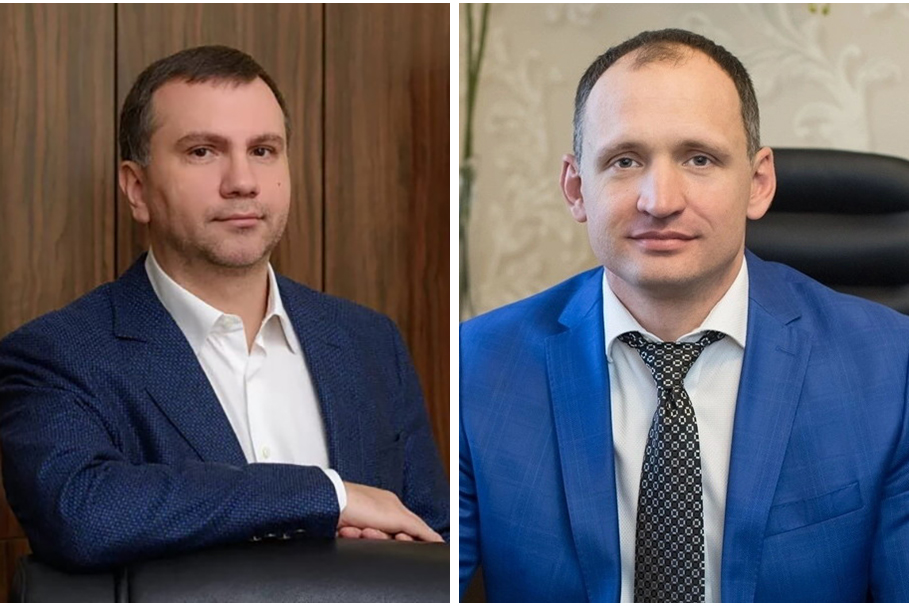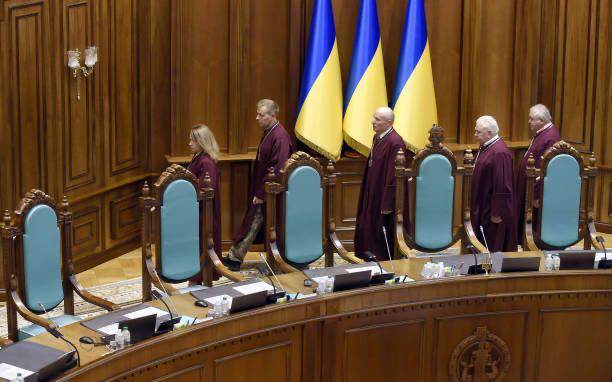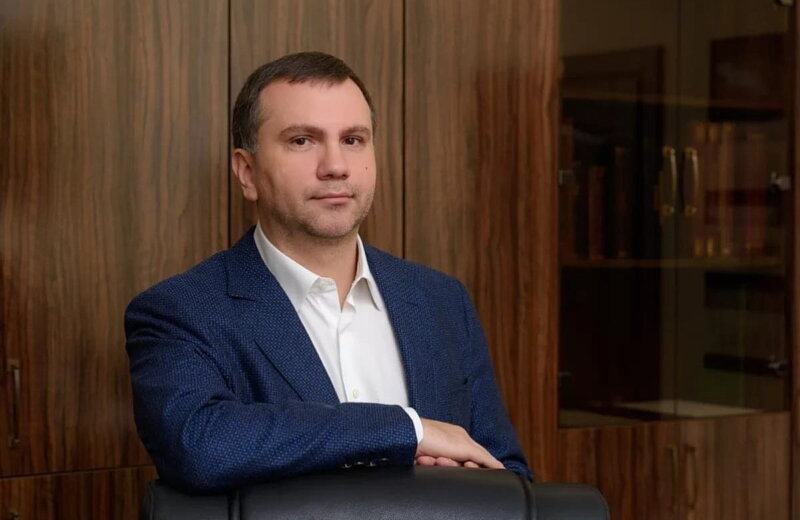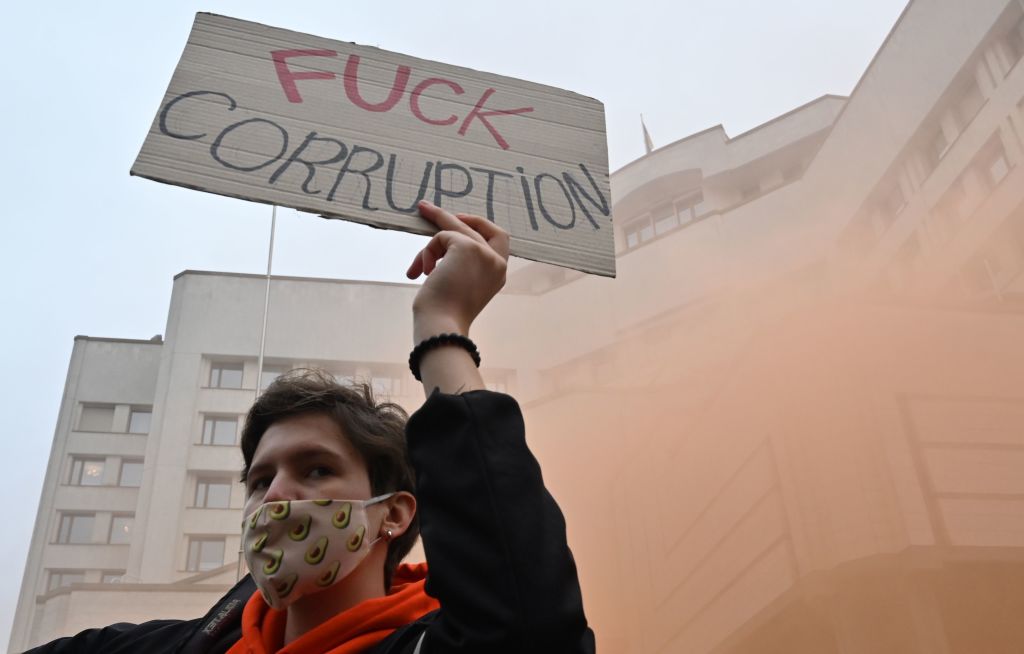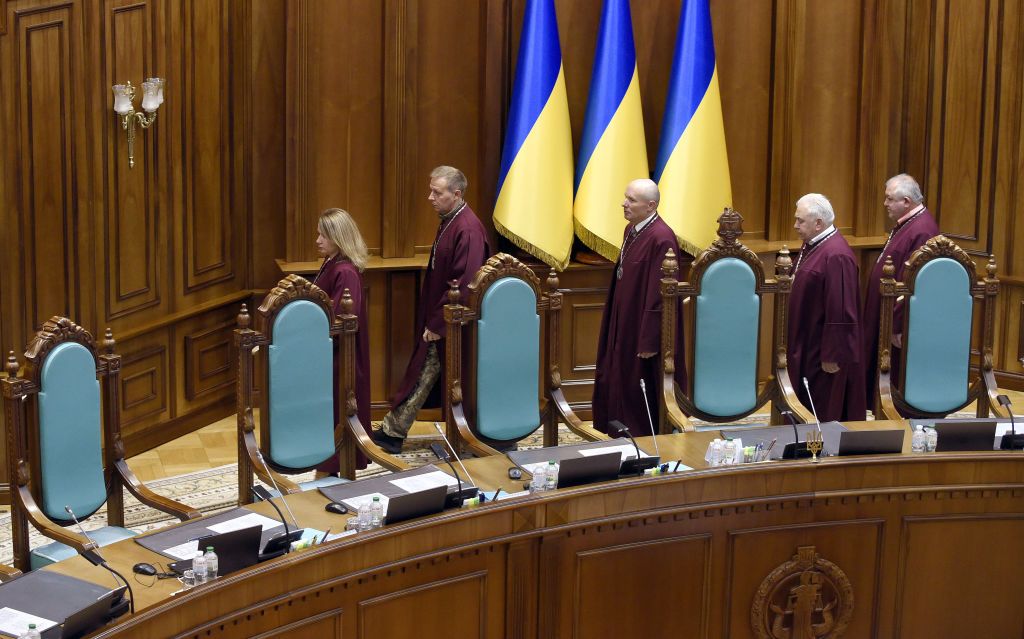Officials accused of using war as pretext for hiding ill-gotten wealth

As Ukrainian soldiers are defending their homeland on the front line, officials in the rear are accused of using the war as a pretext for hiding their wealth.
They are able to do so because one of Ukraine’s main anti-corruption tools, the asset declaration system, has been effectively eliminated.
After Russia launched its full-scale invasion in February 2022, the Ukrainian authorities passed a law to allow officials not to file electronic asset declarations and shut down public access to all previous declarations. Officials will only have to resume submitting asset declarations within three months after the end of the war – which is not coming in the near future.
As a result, it is much more difficult and sometimes impossible to identify corruption. Moreover, without asset declarations it is also impossible to conduct proper background checks on candidates for state jobs, anti-corruption activists say.
Since September 2022, the Ukrainian authorities have promised to restore the asset declaration system. The issue is crucial for Ukraine’s talks on joining the European Union and borrowing money from the International Monetary Fund.
However, there has been no progress for many months, and President Volodymyr Zelensky and the parliament, which is dominated by his party, are in no hurry to re-launch the system.
“It negatively affects anti-corruption efforts, and there is no control over officials’ lifestyle,” Olena Shcherban, a deputy executive director of the Anti-Corruption Action Center, told the Kyiv Independent. “The absence of asset declarations is fertile ground for corruption.”
The President’s Office did not respond to a request for comment.
A few of Zelensky’s allies have publicly supported the restoration of declarations. The president himself hasn’t explicitly backed it.
History of sabotage
Ukraine’s electronic asset declaration system was created after the pro-Western 2014 EuroMaidan Revolution. In contrast with previous paper declarations, the new system dramatically increased the transparency of state officials’ assets and made it easier to punish them for violations.
The launch of the system was a requirement for getting visa-free travel with the European Union in 2016.
To manage the asset declaration system, Ukraine created the National Agency for Corruption Prevention (NACP, known in Ukraine under its Ukrainian abbreviation NAZK) in 2015-2016.
The agency and asset declarations have a long history of sabotage.
The first leadership of the NACP, headed by Natalia Korchak, faced numerous accusations of essentially sabotaging the system, which they denied.
Initially it was accused of blocking the launch of the asset declaration system for many months.
It got worse. In 2017, one year after the launch, Hanna Solomatina, a top NACP official, publicly accused the agency’s leadership of corruption, taking orders from the presidential administration and persecuting then-President Petro Poroshenko’s political opponents. Her claims were backed up by other ex-NACP employees.
Civil society and the West called for re-launching the agency and replacing its leadership but the Poroshenko administration refused to do so.
After Zelensky was elected in 2019, a new head, Oleksandr Novikov, was appointed in 2020 with the participation of foreign experts.
But then a new wave of sabotage ensued – this time, externally.
In 2020, the Constitutional Court effectively destroyed Ukraine’s asset declaration system by depriving the NACP of most of its powers. The court ruled that these powers were unconstitutional and also canceled penalties for lying in officials’ asset declarations.
In 2021 parliament passed a bill restoring the system but at the same time allowed state officials not to disclose their relatives in asset declarations, effectively making them a useless tool.
Zelensky vetoed the bill, and eventually both the asset declaration system and the requirement to disclose relatives’ property were reinstated.
During full-scale invasion
Russia’s full-scale invasion of Ukraine provided a convenient pretext for not disclosing officials’ wealth.
Activists say that a temporary suspension of the asset declaration system may have been justified at the beginning of Russia’s full-scale invasion in February 2022.
The very survival of Ukraine was at stake, with Russian troops on the outskirts of Kyiv. At that time, it could have been physically impossible to run the asset declaration system or file declarations.
However, activists say that this justification became invalid after Russian troops withdrew from Kyiv Oblast and the nearby regions in April 2022.
“At the beginning of the invasion, no one knew if Kyiv would fall or not,” Kateryna Butko, head of anti-corruption watchdog AutoMaidan, told the Kyiv Independent. “But after the de-occupation of Kyiv Oblast there are no reasons that should objectively prevent the re-launch of the asset declaration system.”
At the beginning of the invasion, officials could have been more concerned with survival than corrupt activities, she argued.
“The further away Russian troops were from Kyiv, the more Ukrainian officials became interested in stealing money again,” Butko added.
Olha Stefanyshyna, Ukraine’s deputy prime minister for European integration, agreed that the situation had changed since the start of the invasion.
“When the full-scale war began, there was no access to the state registers,” she told the Kyiv Independent. “Now the situation has changed. The war continues but there is full access to all data and there is the possibility of filing declarations. That’s why this decision (on restoring the declaration system) will be made.”
The Ukrainian authorities used the justification that Russia may somehow use information in asset declarations, which would put officials in danger.
But Butko and Shcherban don’t buy this argument.
They said that there are no specific addresses in the publicly available part of the asset declaration register, and information without addresses would not be useful for Russia.
Shcherban and Butko also argued that Russian intelligence agencies could probably find out what they want without the asset declarations register, and a lot of Ukrainian databases had been leaked to Russia already.
Procrastination
Amid public pressure, a bill on restoring Ukraine’s asset declaration system was submitted to the Verkhovna Rada in September.
In January, a petition was also registered on the president’s site to demand the restoration of asset declarations. Next month, the petition collected the 25,000 signatures necessary for the president to react to it.
In his response to the petition, Zelensky did not say explicitly whether he supported the proposal but said that it is the parliament's prerogative to pass bills.
However, David Arakhamia, the sponsor of the bill to restore asset declarations and head of Zelensky’s Servant of the People party's faction in parliament, argued in February that Zelensky supported the petition.
He also said that a working group had been set up to speed up the passage of the bill.
"Our country is waging a tough war for its future in the civilized world. Therefore, even during fierce battles and missile attacks, officials and MPs must comply with the principles of honesty and transparency," he wrote.
Arakhamia said in May that parliament was expected to pass the asset declaration bill in the first reading by the end of June and in the second reading by the end of September.
Since then, there has been no progress on the asset declaration bill.
“The bill was submitted in September but there is no political will to pass it,” Shcherban said. “The lawmakers are blocking it. They don’t want to fix this problem.”
She argued that the lawmakers are dragging their feet on the bill because they don’t want to be jailed.
Arakhamia and Anastasia Radina, head of parliament’s anti-corruption committee, did not respond to requests for comment.
The anti-corruption committee was expected to consider the bill on July 26, but it didn’t happen. Since the start of the full-scale invasion, the parliament’s hearings are closed to the press and not broadcast on TV or online, like they used to be.
Ruslan Stefanchuk, the speaker of Ukraine's parliament, on July 26 called on lawmakers to support the bill on the restoration of asset declarations.
"My position is clear and understandable: it must be restored as soon as possible," he stated.
Problems with the bill
However, even if the asset declaration system is re-launched, it is not clear if the authorities will restore public access to the system.
Anti-corruption activists believe that restoring public access is necessary as it would make the system more effective. Although government agencies, including the NACP, are supposed to check asset declarations, they are expected to do that better if there is public pressure.
The NACP had been accused of failing to effectively check declarations before. In 2017 Hanna Solomatina, a whistleblower at the NACP, said that the agency had managed to check only 91 out of the 1.5 million asset declarations filed in a year.
“It will be a problem if there is no public access,” Shcherban said.
Due to martial law, the authorities may have to restrict information about people who are located in occupied territories or territories adjacent to the frontline, she said. But in other cases public access should be restored, Shcherban added.
Yaroslav Zheleznyak, an MP from the Holos party, said on July 27 that the most recent version of the asset declaration bill envisages restoring public access to declarations with certain exceptions. Specifically, the names of officials' family members, as well as officials' places of residence, birth dates, locations of assets, and bank account numbers will not be disclosed during martial law, he said.
Shcherban also said that the lawmakers may also weaken the provisions of the asset declaration law.
But she hopes that Western pressure will help to reinstate the asset declaration system successfully.
In February, G7 ambassadors called on Ukraine to quickly restore the system.
A memorandum signed by Ukraine and the International Monetary Fund envisages restoring the asset declaration system. The issue is also being discussed as part of Ukraine’s negotiations to join the European Union.
But officials are dragging their feet because they are afraid of society seeing their hidden wealth before the next elections, Shcherban said.
“Their main goal is to prevent society from seeing their declarations,” she added.


